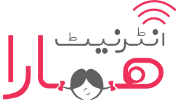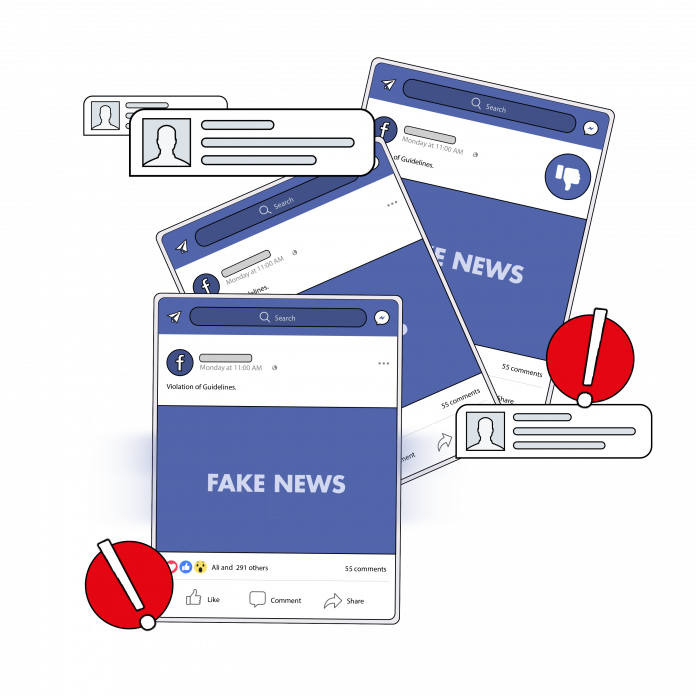By Areeba Fatima
Not more than 3 years old, Pakistan’s nascent fact checking websites are facing a barrage of misinformation. Fake news has resulted in preventable deaths, violent riots and destruction of property.
***
A series of fake videos featuring Nazar Muhammad in Hayatabad Medical Complex went viral on Facebook, WhatsApp and Twitter in spring 2019. The Mashokhel resident reported that children admitted to the hospital had fallen sick after being poisoned by the polio vaccine. He later reported that they had died. Within hours of the series of videos going into circulation online, a surge of panic led parents to admit their children who had received the polio vaccine to hospitals for no good reason. 40,000 children were admitted, clogging up hospitals across the city. None of the children were seriously ill. Several enraged members of the public took to the streets – vandalizing and setting fire to a Basic Health Unit (BHU) dispensing polio vaccines. A mob held polio workers at the facility hostage.
While the author of the Mashokhel videos was later arrested for fanning vaccine denial by spreading misinformation, the damage was already done.This piece of viral misinformation was introduced into the local mix of pre-existing vaccine hesitancy, which can be traced back to Fatwas against lady health workers and controversy surrounding a polio worker’s role in Osama Bin Laden’s capture in Pakistan. Nazar Muhammad’s decision to fabricate deaths at a children’s ward to the polio vaccine was novel but rested on misinformation about the polio vaccine that already existed. On the other hand, it had serious consequences. Three polio workers lost their lives at the hands of mob violence in the ensuing protests across Khyber Pakhtunkhwa (KPK). Over a million parents in the province refused polio vaccination for their children in that year. Even though KPK accounts for only 16% of the country’s population, the province saw 71% of its polio cases that year. A government official said to the Express Tribune, “Negative propaganda against the polio vaccine, particularly the Mashokhel incident, had a significant impact in KPK. The doubts created by that false propaganda dealt a serious blow to anti-polio efforts this year”.
In the Mashokhel case, viral misinformation, or plainly speaking a piece of “news” which turned out to be “fake” shared online created an unnecessary burden on hospitals where wasted time meant lives lost, and directly threatened the health of children by discouraging vaccination against polio. Perhaps the only promising strategy that has been globally deployed to tackle this kind of harmful fake news is fact-checking. This type of fact checking differs from what conventionally took place in newsrooms until the recent surge in viral political misinformation and subsequent rise in public interest in dedicated neutral fact checkers. Previously, a majority of fact checking took place before the piece or article was published, inside the publications own newsroom. With fake news growing exponentially, external fact checking, also known as post hoc fact checking, is the need of the hour. The purpose of post hoc fact checking, especially in the context of politics, is to hold those spreading harmful and untrue information responsible. That is to say, the purpose of the kind of fact checking we are concerned with is to directly tackle misinformation which is already out there to prevent it from spreading further.
***
A 2020 Digital Rights Foundation (DRF) study on fake news in Pakistan noted that in 2016 people across the world began extensively searching the term “fake news” on the Internet. However, in Pakistan this happened in 2018, the election year. This lines up with fact-checkers popping up in the country around that period of time. In July 2018, international news organization AFP expanded their fact check operations world wide and began publishing articles verifying viral misinformation related to Pakistan on a dedicated website. In September 2018, the first local fact checker, Surkhi launched its Facebook page, Instagram handle and a website aptly named Factcheck.pk. While AFP Fact Check continues to diligently publish, having published more than 180 articles over the past 3 years, the last of any fact checking activity from Surkhi was seen in 2019.
The News began its fact check page in October 2019. After sharing a few fact checks from AFP, Express Tribune also launched a fact checking desk in the same year. They have posted a limited number of articles over the course of three years. SAMAA also launched a fact check section in 2019 but has posted more regularly in recent months. Newer organizations are being founded given the increasing amount of fake news. Basic Fact Check began as a Twitter handle in December 2020 and then launched their website.
Also in 2019, Sachee Khabar joined Twitter; a fact checking handle managed by employees at a local media development firm Media Matters for Democracy (MMfD). Sachee Khabar never expanded to other social media platforms or launched a website, but continues to post fact-checks in the form of Twitter threads infrequently. MMfD and DRF have also consistently conducted some of the few fact checking training for journalists in the country in the present. Overall, Sifting Truth from Lies in the Age of Fake News is a study that surveyed 152 journalists to get their opinions on fake news and fact checking. 83% had never attended a fact checking training. This dearth of training is a big contributor to a feeble national attempt at fighting fake news. Studies have found that fact checking does change people’s opinions on fake news, and can slow down the consequences of fake news. But the lack of resources being specifically diverted to fact checking may be a reason why local fact checkers aren’t operating at close to the scale required to make a dent in the exchange of misinformation.
In January 2020 Soch Fact Check (launched in November 2019) became the first fact checkers in Pakistan to acquire the International Fact-Checking Network’s (IFCN) Code of Principles certification. IFCN was established by the Poynter Institute in 2015. It’s a somewhat successful attempt at standardizing fact checking globally. The code of principles mandates fact checking is neutral, transparent and consistent. However on Soch fact check’s Twitter handle, despite fact checks having been posted frequently, the readership is limited to a few hundred English speakers. This may be due to the fewer news readers in English as compared to Urdu, or it may just be because it’s too early for a player to emerge who generates enough of a readership to influence the masses. People do not know enough about fact checking, what kinds of harms it prevents, and why they should read a fact check.
The lack of interest in misinformation free news is emblematic of how political discourse has been stifled in our society. On the other hand, sometimes people are misled about what fake news is itself. That is to say, something which is true is called fake news. The term “fake news” is increasingly used to label criticism against powerful interests as propaganda and at other times, to discredit the truth itself. This is a new challenge for journalists. In 2018 Pakistan’s Ministry of Information and Broadcast (MOIB) launched a Twitter handle @FakeNews_Buster which according to PTI Minister Fawad Chaudhry, was responsible for refuting fake news on Twitter. However the primary purpose this account has served so far is to attempt to refute any undesirable news story or criticism about the ruling party or its members by labeling it “Fake News”. At times that is the only thing the account does. A recent example of this is when on 18 July 2021, @FakeNews_Buster labeled a 2020 Dawn article “fake”. This article mentioned Minister of Information and Broadcasting Shibli Faraz suggesting that investors may turn their black money into white money by investing in the construction industry. The minister had indeed used these exact words at a joint press conference with Naya Pakistan Housing Authority (NPHA) chief Lt Gen Anwar Ali Haider. Benazir Shah wrote for Geo a detailed expose of what the state sanctioned “Fake news buster” has been doing to tackle fake news- creating more of it.
***
Fake news does not exist in a vacuum. Authors of fake news often focus on constructing larger narratives from news beats; misinterpreting, miscontextualizing and misreporting them, to slot them into a larger picture they wish to paint. The tone carried in this type of communication is of someone ushering the audience into a big secret. It’s not much different from the conspiracy theories of yesteryear. Confirmation bias is the tendency to interpret new information to confirm our existing beliefs, even if that information contradicts them. It forms the basis of the origin of many instances of fake news e.g. if people believe the government is full of pawns controlled by America and Israel, they will interpret the governments warnings about COVID 19 as a conspiracy against Islam. COVID 19 related misinformation was/is the subject of many fact checks. Doctors report widespread COVID 19 denial amongst the general population, which resulted in tension between doctors and patients nationwide, sometimes culminating in violent attacks on doctors.
Zaid Hamid led an online anti-vaxxer movement in Pakistan, where he propagated a very consistent narrative that the COVID vaccine will make you infertile. He frequently took realistic snippets of articles, news clippings and videos, often even entirely fabricated, to sell his idea of the COVID vaccine which hundreds bought on Twitter and continued to amplify his voice further by endorsing his content every way they knew. On the other hand, many times fake news originates in the ideological realm. This false information is created intentionally to forward some kind of ideological or socio-political goal, such as legitimizing a government’s performance by misleading people with statistics or delegitimizing a movement by misinforming the general population about it’s members’ demands. Aurat March has faced the brunt of an organized disinformation campaign since its inception. Crass, insulting or denigrating symbols and dialogues are superimposed onto Aurat march posters, slogans and chants. This is done with the intention of confusing the Aurat March’s communication with the public, preventing it from getting its message across, and damaging its reputation and legitimacy.
***
Considering that Indian and Pakistani social media accounts often engage frivolously in spreading misinformation about their neighbor, India has 16 active signatories of the IFCN, Bangladesh has two and Pakistan has only one. Given the consequences of fake news this country has faced, our national effort at fighting misinformation is just not matching up. The scale with which fake news and misinformation enters the social media spaces, the speed with which its spread is very fast. Equally surprising though is the lack of mental checks fake news goes through before being accepted by the audience. And the handful of local fact checking networks that we do have write inconsistently, in the English language and in absence of the ideological motivation per say. They are no match for their competition at this time. In the future, fact checking will have to build literacy about media and information itself in the population, so people are able to discern for themselves what fake news is, and they won’t need fact checking as much. In the present, greater resources must be dedicated to fact checking in Pakistan, especially in a way where smaller organizations can access support and funding from big players Facebook and Google through certification with the IFCN. More IFCN Code of Principles signatories will be the first step. This means assessing the weaknesses of IFCN’s system and fixing them too. Soch Fact Check’s IFCN approval took almost 9 months to come through, despite the 3 month estimate on their website. Delays like this could put fact checkers looking to work with Facebook and Google in financial jeopardy.






